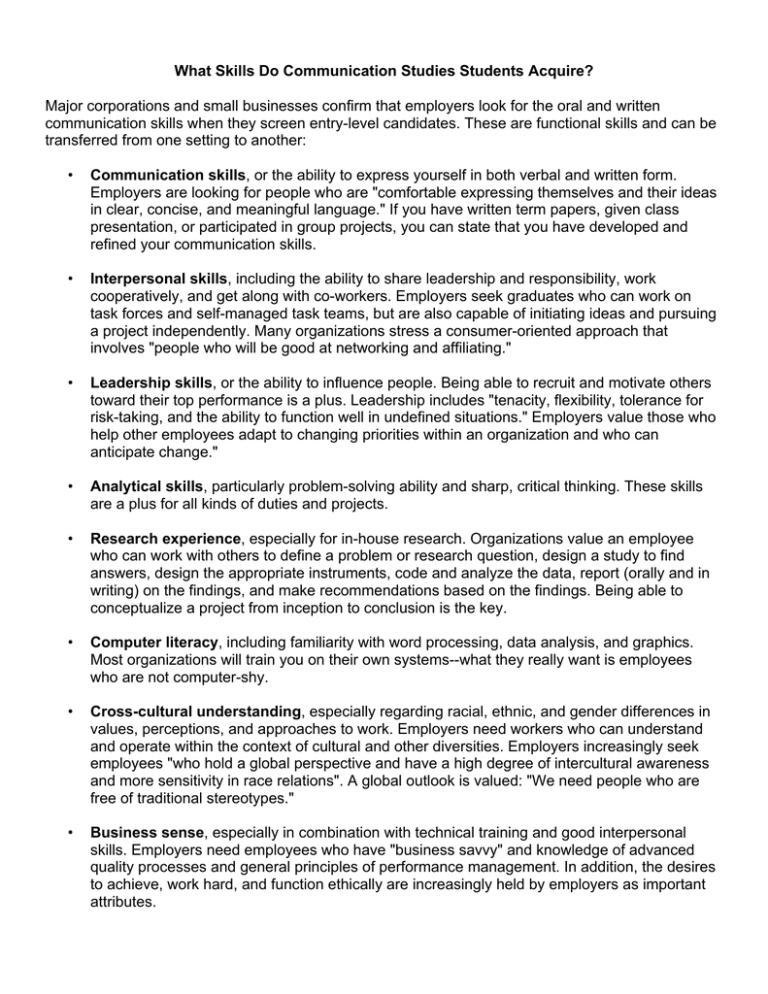What Skills Do Communication Studies Students Acquire?
advertisement

What Skills Do Communication Studies Students Acquire? Major corporations and small businesses confirm that employers look for the oral and written communication skills when they screen entry-level candidates. These are functional skills and can be transferred from one setting to another: • Communication skills, or the ability to express yourself in both verbal and written form. Employers are looking for people who are "comfortable expressing themselves and their ideas in clear, concise, and meaningful language." If you have written term papers, given class presentation, or participated in group projects, you can state that you have developed and refined your communication skills. • Interpersonal skills, including the ability to share leadership and responsibility, work cooperatively, and get along with co-workers. Employers seek graduates who can work on task forces and self-managed task teams, but are also capable of initiating ideas and pursuing a project independently. Many organizations stress a consumer-oriented approach that involves "people who will be good at networking and affiliating." • Leadership skills, or the ability to influence people. Being able to recruit and motivate others toward their top performance is a plus. Leadership includes "tenacity, flexibility, tolerance for risk-taking, and the ability to function well in undefined situations." Employers value those who help other employees adapt to changing priorities within an organization and who can anticipate change." • Analytical skills, particularly problem-solving ability and sharp, critical thinking. These skills are a plus for all kinds of duties and projects. • Research experience, especially for in-house research. Organizations value an employee who can work with others to define a problem or research question, design a study to find answers, design the appropriate instruments, code and analyze the data, report (orally and in writing) on the findings, and make recommendations based on the findings. Being able to conceptualize a project from inception to conclusion is the key. • Computer literacy, including familiarity with word processing, data analysis, and graphics. Most organizations will train you on their own systems--what they really want is employees who are not computer-shy. • Cross-cultural understanding, especially regarding racial, ethnic, and gender differences in values, perceptions, and approaches to work. Employers need workers who can understand and operate within the context of cultural and other diversities. Employers increasingly seek employees "who hold a global perspective and have a high degree of intercultural awareness and more sensitivity in race relations". A global outlook is valued: "We need people who are free of traditional stereotypes." • Business sense, especially in combination with technical training and good interpersonal skills. Employers need employees who have "business savvy" and knowledge of advanced quality processes and general principles of performance management. In addition, the desires to achieve, work hard, and function ethically are increasingly held by employers as important attributes.

